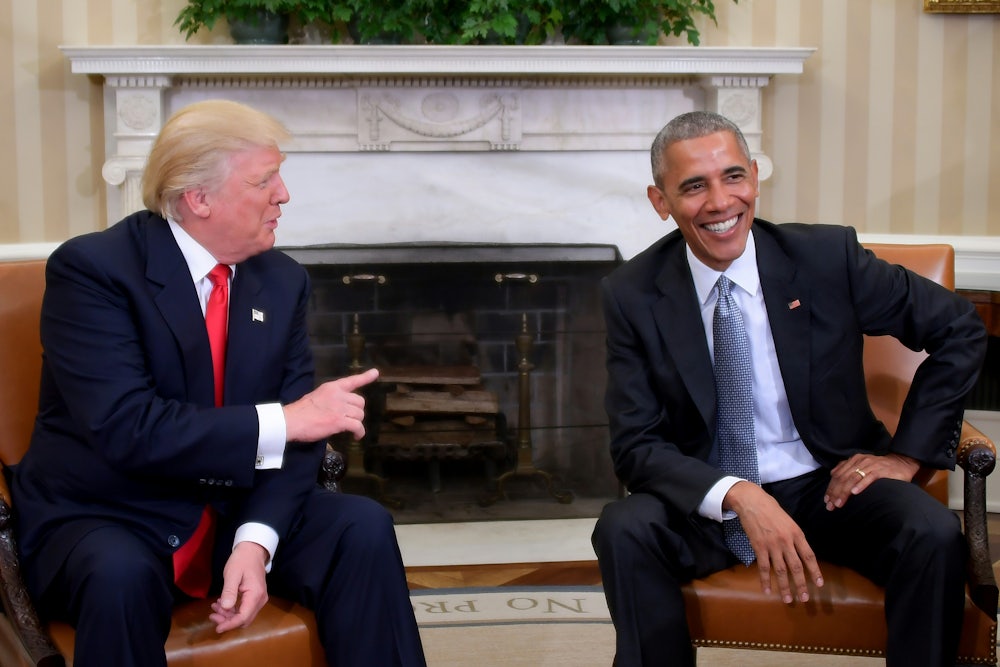There are essentially two views of the election on the left. The first is that, in an era of extreme polarization, when voters are heavily inclined to support the nominee of their party, no matter how racist or sexist or incompetent or generally foul he might be, it was a simple binary choice that could have easily gone either way. Throw in a weak Democratic candidate, historical trends against a party keeping the White House for three terms, the Comey letter, and the shenanigans of Vladimir Putin, and you get the unthinkable: President Donald Trump. Jonathan Chait has given us a version of this argument, writing, “Sometimes there is no moral, just a bunch of stuff that happens.”
The other view is that Trump’s election is the latest and most spectacular in a series of assaults on the liberal democratic order that have taken place across the Western world, which has been shaken to its foundation by the inequities of global capitalism, terrorism, and mass immigration. That America could elect a racist demagogue is both an expression of the enduring power of the revanchist right, which was best positioned to launch an attack on this order, and an indictment of democratic institutions like the Democratic Party, which failed to adequately address, in particular, the economic anxieties of voters.
Some commentators, like Josh Marshall, have weaved together elements of both these views. But for what it’s worth, President Barack Obama appears to be firmly in the former camp, telling David Axelrod this week that he could have beaten Trump if he had been able to run for a third term. The problem, according to Obama, was simply a matter of communication: “We’re not there on the ground communicating not only the dry policy aspects of this, but that we care about these communities, that we’re bleeding for these communities,” Obama said.
No matter what nice and/or exonerating things Obama said about Hillary Clinton in this interview, he is laying Trump’s victory at the messenger’s feet. His position is understandable in that he is trying to defend his legacy, which is on the verge of being dismantled. But he is also signaling that the party he leads is not in the kind of crisis that would require a deep examination of base philosophies.
